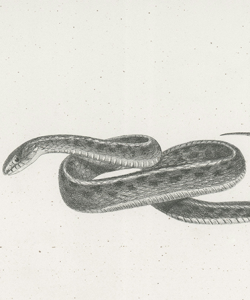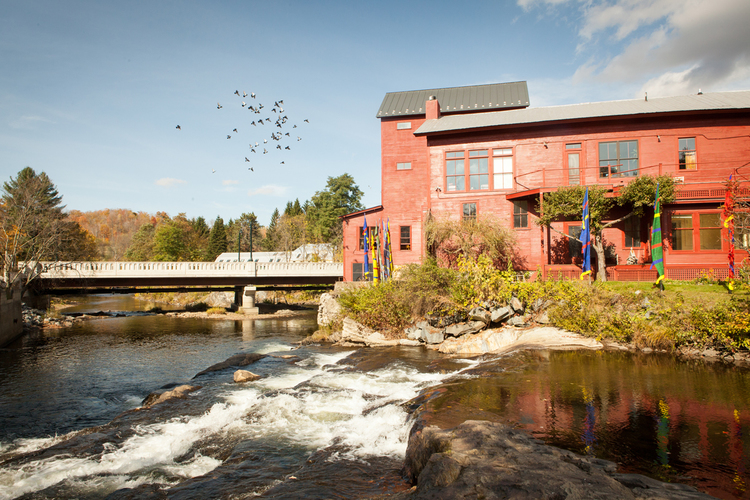Toward the Sensuous Form: Transing the Essay

The author of Voice of the Fish: A Lyric Essay (Graywolf Press, 2022) reflects on what a trans essay might look like.
Jump to navigation Skip to content

The author of Voice of the Fish: A Lyric Essay (Graywolf Press, 2022) reflects on what a trans essay might look like.
Do you want to spend time eating in a place that’s been called a “fully immersive postmodern design hellscape-themed dining experience?” Over the years, despite the eclectic interior decor, ambience, and absurdly lengthy menu that has been written about by bewildered yet admiring journalists, the Cheesecake Factory has become a top-ranked casual restaurant chain and a cult favorite amongst celebrities. Think about the interior of a place that you have strong opinions about. Maybe it’s a room in a grandparents’ house from long ago, a particular restaurant, library, or a favorite bookstore. Write a personal essay that describes in detail the various architectural and interior design elements at play. Examine your personal memories in connection to your aesthetic responses to the site to make your descriptions as vivid as possible.

The author of Voice of the Fish: A Lyric Essay (Graywolf Press, 2022) considers what it would mean for the essay to embrace new kinds of meaning-making.
As the end of the year approaches, Ann Patchett, author and owner of Parnassus Books, and Maureen Corrigan, professor and book critic for NPR’s Fresh Air, reveal their favorite books of 2025 for PBS Newshour, which include The Loneliness of Sonia and Sunny (Hogarth, 2025) by Kiran Desai, The Antidote (Knopf, 2025) by Karen Russell, and A Long Game: Notes on Writing Fiction (Ecco, 2025) by Elizabeth McCracken.
In a recent essay published on Literary Hub, Jean Chen Ho writes about spending an academic year as a visiting assistant professor in upstate New York and the isolation she experienced as an Asian American in a predominantly white neighborhood. Throughout the piece, Ho mixes her reflections about daily activities—visiting a museum, exercise, meeting colleagues, dating, and going to a local bar—with observations of her environmental surroundings and the violence and devastation in Gaza, as well as allusions to Louise Bourgeois, Jane Hirshfield, and Milan Kundera. Write a personal essay that meditates on a time when you have felt particularly alone. Where were you and what were the circumstances that contributed to your feelings of isolation? How did the environment around you, and the art or writing you connected to at the time, reflect your state of mind?
Vermont Studio Center offers two-, three-, and four-week residencies year-round to poets, fiction writers, creative nonfiction writers, and translators in Johnson, Vermont, a village located in the heart of the northern Green Mountains. Residents are provided with time and space to write, as well as readings, craft talks, and one-on-one manuscript consultations with invited visiting writers. Residents receive a private room, a private studio, and meals. The cost of the residency is $2,700 for a two-week stay, $3,825 for a three-week stay, and $4,950 for a four-week stay.
Vermont Studio Center, 80 Pearl Street, P.O. Box 613, Johnson, VT 05656. (802) 635-2727.


When a memoirist studies her manuscript for patterns in theme and style, the symmetries she cultivates bring powerful shape to her book.

Ten authors answer the tenth question in our Ten Questions series: What’s the best piece of writing advice you’ve ever received?

The author of Voice of the Fish: A Lyric Essay (Graywolf Press, 2022) reflects on the ancient origins of the essay form.
It’s that time of year to send and receive holiday cards, some of which may include a family newsletter with highlights of the past year from friends and family. According to a survey from the Emily Post Institute, a family business promoting etiquette since 1922, 47 percent of respondents don’t like to receive holiday newsletters. The institute’s website suggests this might be because the letters are more of a brag sheet rather than a genuine desire to communicate. Try your hand at composing a holiday newsletter that recounts notable events and milestones from throughout the past year. Take this exercise as an opportunity to reflect on favorite memories and changes, both big and small. Perhaps you’ll decide to subvert conventional expectations and strike a subversively satirical or darkly apocalyptic tone. Have fun with it!